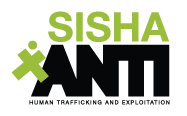Cambodia remains one of the poorest countries in the world and its social indicators are among the worst in the South East Asian region. Following decades of mass genocide, civil war, and widespread corruption, extreme poverty, human trafficking, and sexual exploitation persist as key threats to fundamental human rights and personal security. Cambodia was recently up-graded in the U.S. Department of State’s Trafficking in Persons Report 2010 to a Tier Two country, evidence of the ongoing severity and prevalence of human trafficking to, from, and within Cambodia.
Human Trafficking
According the U.S. Department of State’s Trafficking in Persons Report 2010, Cambodia is a source, transit, and destination country for men, women, and children trafficked for the purpose of commercial sexual exploitation and forced labour.
Women and girls are trafficked to Thailand and Malaysia for exploitative labour as domestic workers and forced prostitution. Some Cambodian men migrate willingly to Thailand and Malaysia for work and are subsequently subjected to conditions of forced labour in the fishing, construction, and agricultural industries. Cambodian men and women repatriated from Malaysia report experiencing conditions of forced labour after migrating there for work with the assistance of Cambodian labour recruitment companies. Cambodian children are trafficked to Thailand and Vietnam to beg, sell candy or flowers, or shine shoes. Parents sometimes sell their children into involuntary servitude to serve as beggars, into brothels for commercial sexual exploitation, or into domestic servitude.
Within Cambodia, children are trafficked for forced begging, waste scavenging, salt production, brick making, and quarrying.
Human trafficking has many faces. Many girls and women are trafficked by their families, neighbors, or other people that they know and trust. Often, they initially consent to travel, believing that they have a legitimate job waiting in the country or city to which they are traveling. However, upon arrival they find themselves forced into prostitution and other forms of exploitative labour.
In cases of transnational trafficking, their captors take their passports when they arrive at their destination, they are told that they have to work to repay their ‘debt’ (a sum that can never realistically be repaid due to low (or no) pay, inflated interest and unreasonable penalties); and they are kept in virtual, if not literal, captivity.
Often, within days of arrival, women and young girls are beaten, raped or drugged until they resign themselves to their fate of being a prostitute. Even in cases where women are eventually released by their captors, they often choose to stay because they believe that their communities will reject them because of their pasts, and there is thus no other future for them.
Unfortunately, an old Cambodian adage reveals a belief system that remains prevalent today: men are like gold and women are like white cloth – the former is easily cleaned; the latter is tarnished and stained for life.
Poverty
According to the UNDP Development Report, 35 per cent of Cambodia’s population lives below the national poverty line of $US 0.45 a day, and Cambodia is ranked 131st of 177 countries on the UN Human Development Index. Around three quarters of the population do not have access to safe drinking water, and the average life expectancy is 59 years. Many Cambodians still experience periods of hunger, causing 45 per cent of children under 5 to be underweight and 13 per cent to be severely underweight.
Rape
Rape and sexual assaults occur at alarming rates in Cambodia, with child rape and forced child prostitution being of particular concern. The prevalence of gang rapes has emerged as a growing problem, with media reports such as “Cambodia’s penchant for gang rape grows more common” and “Gang rape has become the sport of the young generation.”
It is expected that gang rapes and other acts of sexual violence against women will continue to exacerbate the incidence of trafficking and sexual exploitation because of prevailing societal attitudes that deem rape survivors as “srey khoic” or “fallen women.” It is widely recognized that sexual violence and rape often lead to trafficking of Khmer girls because girls who have been raped are stigmatized and believe they have no chance of a normal life, leaving them vulnerable to traffickers.
Corruption
Corruption permeates local law enforcement and the judicial process in many South East Asian countries. As a result, local police investigations into human trafficking and sexual exploitation cases are extremely low in number, and offenders, both local and international, are rarely apprehended or prosecuted. In March 2009, Forbes magazine identified Cambodia as one of the 10 most corrupt countries in the world.
Similarly, Transparency International’s Corruption Perceptions 2008 ranked Cambodia 166th out of 180 countries with a score of 1.8 on a corruption scale ranging from 10 (minimal corruption) to 0 (highly corrupt). With this score, Cambodia was deemed more corrupt than several countries with notoriously bad human rights records such as Zimbabwe and Sierra Leone.
